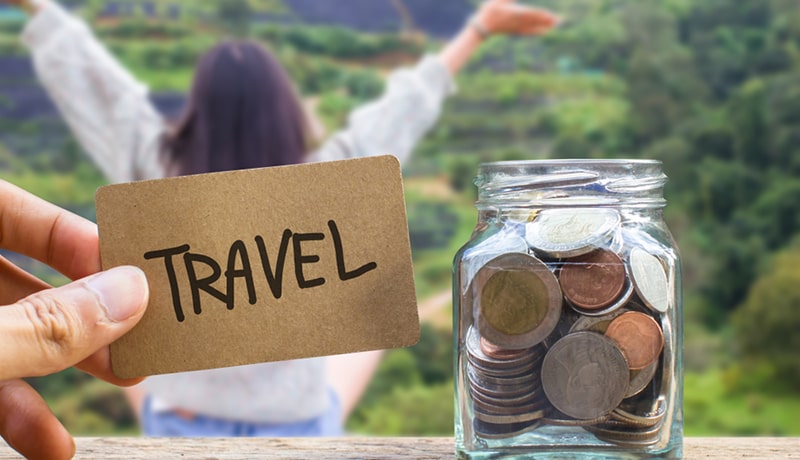
Going on vacation is not an inexpensive proposition, so it is important to keep your traveling money safe. It is easy to let your guard down when on vacation, but doing so could open you up to theft, hacking and other crimes. If you want to stay safe and enjoy your favorite destination, just follow these nine money-safe tips the next time you go on vacation.
1. Divide and Conquer
Keeping all your money and credit cards in the same place is just asking for trouble, so use the divide and conquer strategy instead. Keep a spare credit card in an extra wallet and store it in the hotel safe, use a money belt to stow away extra cash and pack an extra wallet with a credit card and an emergency supply of money.
2. Notify Your Bank Before You Leave
Banks take fraud seriously, and if you are not careful, you could end up on their list without even knowing it. The use of a credit or debit card in a new location is a big red flag, one that could get your account temporarily suspended.
To avoid such disruptions, be sure to contact your bank and credit card issuer before you leave for vacation. Let them know where you are going, when you are leaving and when you expect to arrive back home.
3. Sign Up for Text Alerts
Text alerts notify you when your credit or debit card is used, giving you a valuable heads-up and defense against unauthorized use. If you have not already done so, then sign up for text alerts from your credit card issuers, and check your phone frequently for any new information.
4. Make Copies of Your Credit Cards and Financial Documents
Losing your wallet on vacation is no fun, but the right preparation can stop it from becoming a vacation-ending disaster. Make copies of your credit cards, including the toll-free customer service phone numbers, and keep those copies in a separate location from your credit cards and cash.
If your credit cards are lost or stolen, you can use those backup documents to contact the issuer and get replacement cards. You will still have a few days of inconvenience, but at least you will be able to complete your trip.
5. Examine Those ATMs
ATMs are everywhere, and they are convenient resources for accessing extra cash. Unfortunately, ATMs are sometimes home to skimming devices that can steal your personal data and allow criminals to clone your credit and debit cards.
Always check the ATM carefully before getting cash. If something does not seem right, move on to another location and notify the owner of the compromised machine. Unattended ATMs are more likely to harbor skimmers, so look for cash machines attached to brick-and-mortar banks and retail locations.
6. Keep Your Cash to a Minimum
If you lose your credit card while on vacation, then you can get a replacement card. Furthermore, if you notify the issuer, you will not be liable for any unauthorized charges.
Cash is another story, and if it is lost or stolen, it is likely gone forever. If you want to protect yourself, travel with the lowest possible amount of cash; you can always replenish your supply of greenbacks using local ATMs.
7. Be Aware of Your Surroundings
Your common sense is your best defense while traveling, so pay attention to your surroundings and trust your instincts. If an ATM location does not seem safe, pass it by and find another one. If you feel threatened by someone you think is following you, go to a busy well-lighted location or flag down a police officer. Your awareness can go a long way, so trust your gut to keep you, and your money, safe.
8. Choose Credit Over Debit
Credit and debit cards are equally convenient for travelers, but they offer different levels of protection. If your debit card is stolen or compromised, a thief could empty out your bank account in no time, and getting the money back can be difficult and time-consuming.
Credit cards offer a higher level of protection against theft and unauthorized purchases, making them the better choice for traveling. Be sure to record the credit card number and toll-free customer service number – just in case your card is lost or stolen.
9. Use Caution with Public Wi-Fi
Public Wi-Fi is convenient, but it is not always secure. If you must connect to a public Wi-Fi network, you should at least avoid sensitive web surfing, like checking your account balances or logging on to your credit card accounts. Save those private operations for networks you know are safe, or go old-school and check your balances over the phone.
Traveling should be fun, not a source of financial stress. If you want to enjoy your next getaway, a few simple precautions and some common sense can help you relax and unwind, without worrying about losing your hard-earned money to a hacker or criminal. Remember to contact Spencer via email or by phone, at least one week before your trip, to let us know you are traveling and ensure your Spencer Savings Bank VISA Debit Card will work.

